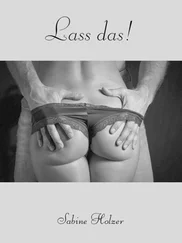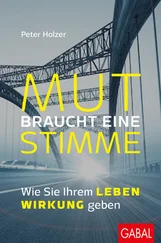“Our orders are to put ourselves and this aircraft at your disposal from now until sunset when, I was told, you have a dinner appointment with Chancellor Dmitri Malik,” the captain said. “I’m responsible for flying this bird,” he continued, “but as to anything else, I take my orders from you. May I ask who are the other members of your party?”
“Yes, of course. Honored guests of the DDR, Dr. and Mrs. Kurt Brenner. Galina Barkova, my assistant.” Then, nodding at Luka, Kiril added, “This man is with me.”
Both pilots understood immediately.
While Gruner did a last-minute walk-around check of the aircraft, Kiril, noticing Brenner’s discomfort, turned to his wife. “If your husband thinks East German helicopters are inferior or in some way unsafe compared to American ones,” he said, “I’d be happy to reassure him.”
“It’s not that,” Adrienne said, smiling. “Kurt is claustrophobic. This helicopter is pretty narrow. Haven’t you noticed how my husband practically breaks into a cold sweat whenever we step into an elevator? And the elevators here are spacious compared to the ones in Paris. They’re not only tight, but maddeningly slow.”
“Why don’t I ask the co-pilot to show us around, explain how the helicopter works?” Kiril suggested. “That way I can translate our plush accommodations into English for you and Galya.”
“Thanks. I’d like that,” Adrienne said.
Kiril returned with the co-pilot in tow.
“This is a model MI-4 helicopter, manufactured in the Soviet Union since 1953. NATO’s name for it is Hound ,” said the co-pilot. “When used by the military, it can carry a dozen or more soldiers and much equipment. This version, an MI-4- L , means the interior was remodeled to carry—how do you say?—VIPs. And that means it takes up to six adults, comfortably seated in the lower body of the aircraft. As you can see, three large windows on each side of the aircraft provide every passenger with an unobstructed view. The cabin, entered through a door on the left side of the aircraft is heated and sound-proofed. There is a toilet in the rear.”
The co-pilot warmed to his subject.
“Depending on altitude and load, we can cruise at 140 miles per hour. Today our flying time should be just less than an hour to the lake, then however long Dr. Andreyev needs us to fly around looking at the sights. The weather promises to be cooperative. The engine is 1,675 horsepower—more than adequate. And now,” he announced with a trace of formality, “we must board.”
Captain Gruner was already on the flight deck. His co-pilot escorted the party to the open door on the left side of the aircraft. “Ladies?” he said, motioning first to “honored guest” Adrienne Brenner.
Looking inside, Adrienne saw a row of three airline-type seats facing the rear of the aircraft, their backs against a wall beyond which was probably the engine and, above it, the flight deck. In front of the seats was an aisle as wide as the plane itself and about five feet deep. Facing the three seats were another two, with an empty space the size of one of the chairs. The East Germans had removed one of the usual six seats since there were to be only five passengers.
Very impressive.
Adrienne climbed up a short ladder and took the farthest seat in the row of three. Galya followed Adrienne in and sat next to her. Brenner took the seat opposite his wife in the row of two. When Kiril took the seat next to Galya, she flashed him a look of excitement. Luka Rogov heaved himself into the remaining seat opposite Kiril.
Leaning into the cabin, the co-pilot called out, “Dr. Andreyev, should you want to talk to the flight deck, use that wall phone on your left. You will hear us through the speaker above your head.”
As the co-pilot slammed the door, Kurt Brenner broke out in a cold sweat.
* * *
The helicopter ascended from the hotel roof as if pulled by a huge magnet, its five passengers silent as they waited for the aircraft’s blades to lift it into the air. After a few minutes of vertical flight, the co-pilot’s voice came through the speaker. “We have reached the altitude for horizontal flight over Waren and Lake Muritz. You will be able to see much on the ground. Please enjoy the view.”
Silently cursing the absence of seatbelts, Brenner gripped the armrests on both sides of his seat.
Luka Rogov leaned toward Kiril and asked in Russian, “How long we up?”
Despite the cabin being sound-proofed, Kiril had difficulty hearing him and asked Rogov to repeat his question. Kiril looked at his watch. “About an hour.”
As the helicopter flew north, Adrienne and Kiril took advantage of the large windows in the VIP aircraft to watch the landscape unfolding below… cultivated farmland and flat country with few high hills… lush green meadows studded with trees and dotted with small lakes.
The voice that came through the speaker this time was the pilot’s. “Ladies and gentlemen, in a few minutes we will resume vertical flight, slow our descent considerably, hover for a moment, and ease onto the ground.”
When Gruner climbed down from the flight deck, he announced that they were now in the Muritz National Park, only a few miles from town. “You will be picked up momentarily by a gentleman named Herr Dieter Gelb,” he told them.
Gelb was probably Stasi —Ministry of State Security, Kiril thought.
As if on cue, a ZIS-110 appeared.
The lanky man in civilian clothes and pointy leather boots who stepped out had a thin-lipped mouth and the feral look of a shark. He shook Kiril’s hand, then said in English: “Doctor Andreyev, I am Herr Dieter Gelb.” Delivering what sounded like a scripted statement, Gelb said he’d been asked by Chancellor Malik to escort them in Waren Town. He had taken the liberty of arranging an itinerary. “Unless you have objections?”
There were no objections.
“It is precisely 11:18 A.M. For the next three hours—until 2:15 P.M., that is—I will be your host,” Gelb said with an appreciative glance at the two women. “Promptly at 2:30 P.M., you will enjoy lunch on the terrace at the Hotel zum Storchen, after which you will be taken to the town beach for ninety minutes. Chancellor Malik has provided swimming attire for those of you who may lack it. Except for Sergeant Rogov, of course, who will remain in uniform.”
“Of course.” Kiril didn’t bother to fill Rogov in. It would never have occurred to his “shadow” to exchange his military tunic for a bathing suit.
“At 4:15 P.M.,” Herr Gelb continued, “I will collect you at the beach, return you here, and your helicopter pilots will have you back at your hotel between 5:00 P.M. and 5:15 P.M., when you may prepare for your dinner with the Chancellor.”
Their first stop was at two churches built in the fourteenth century. What followed proved to be a fascinating sightseeing tour—but only to Kiril and Adrienne Brenner, apparently. As they walked through a fifteenth century old town hall, followed by an eighteenth century fire station and a nineteenth century new town hall, Kiril had to admit that Gelb was a fount of information. Kiril and Adrienne flanked him as they walked cobblestone streets, asking historical and cultural questions that their guide answered knowledgeably and with alacrity.
Allowed to take photographs for a change, Adrienne used what she thought of as her boxy, pain-in-the-butt camera.
Galya, looking bored, and Brenner, long-suffering, trudged behind them. Luka stoically brought up the rear.
They passed monuments to the victims of fascism. To World War II refugees. To Communist resistance fighters.
As promised, promptly at 2:30 P.M., Herr Gelb had the six of them seated on the terrace of the Hotel zum Storchen for a sumptuous lunch. Kiril ordered for Luka. The time passed quickly. Kurt Brenner had again withdrawn into himself. Galya ate up a storm, though she was no match for Luka Rogov. Adrienne Brenner took some notes.
Читать дальше












